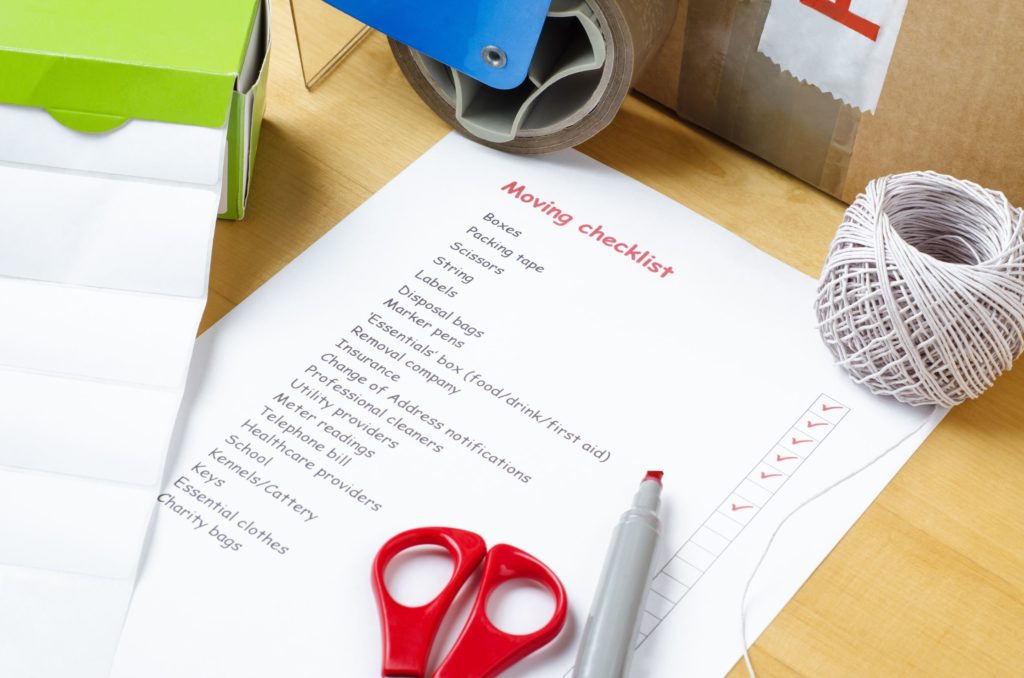Anyone who’s moved before understands how stressful the experience can be. To lower stress levels, create a moving out checklist for better organization. With so many details involved, it’s easy to get off track unless you have an itemized list.
For families in Truro, Nova Scotia, and cities across Canada, most will find it best to plan early. Check out this list of 12 top things most people need to include on their moving out checklist:
1. Decide What to Move
Moving is the ideal opportunity to dispose of things you no longer need. Not having to ship or carry these things with you will save you time and money. Go through your home and identity items for each of these three categories: items to keep, items to sell or donate and items to be thrown out.
2. Find Where to Dispose of Unwanted Items
Identify charitable organizations that accept donations and make arrangements for pick-up or drop-off of goods. Contact your municipal waste disposal depot to determine what goods can go to landfill or recycle centres. Some municipalities will do free pick-ups of larger furniture or appliances.
3. Contact Moving Companies for Cost Estimates
Ask family, friends, co-workers or your realtor to recommend a professional moving company. Contact two or three of these firms and arrange for an in-home survey and free no obligation cost estimate.
Unless you live long-distance from a mover’s office location, or only have limited items for moving, most movers will make a trip to your home. In some cases, phone estimates can be done, however the best way to get an accurate cost estimate is always in person.
4. Compare Cost Estimates
Make sure moving companies provide you with a detailed cost estimate that includes all charges for transportation, fuel, other surcharges, packing (if required), accessorial services (i.e. automobile transport, appliance servicing, housecleaning etc.) and full replacement cost cargo protection. This way you can do an “apples to apples” comparison. Don’t make your decision solely on price. The company’s ability to deliver on their promises should be taken into consideration.
5. Book Your Move
Secure your move date well in advance. This is especially important if you’re moving during the peak summer season when movers are at their busiest. Lock in your preferred schedule with them so they can reserve the equipment and crew required for your move.
6. Arrange for Storage if Required
If you know your new home won’t be available for a few weeks or months – discuss short or longer term storage with a moving company representative. When moving long distance, storage can be done in your origin or destination city.
One advantage of using a company like Premiere Van Lines is that we have our own offices/ warehouses at various centres across Canada. This way, you’ll have peace of mind knowing your possessions are properly stored in a government approved warehouse.
7. Make a Packing Plan
If you decide to do your own packing, start by gathering necessary supplies. You can purchase packing materials from your move company, a supply outlet or retail location like Home Depot. Make sure you have lots of packing paper, strong packing tape and markers. Your Premiere representative can also provide you with professional packing labels and packing tips.
Create a packing schedule, so you can pack items you don’t use daily in advance. If you’re staying in your home the night before moving, leave open cartons for bedding and last minute items. Also pack a box of essentials for your first night in your new place.
8. Contact Utility Companies and Service Providers
Make arrangements to have meters read and utilities disconnected on moving day. Do the same for telephone, cable and internet service. Cancel any regular delivery or other services. Then schedule to have connection or commencement of these services at your new home.
9. Arrange for Change of Address
Contact Canada Post to arrange change of address and the forwarding of your mail. This can be done at a local postal outlet or online: www.canadapost.ca. Make a list of other companies that need to be notified about your move. Email or mail your new address to banks, insurance companies, subscription services etc.
10. Obtain School, Medical, Dental, Veterinarian Records
If you’re moving long distance, you’ll need copies of these important records. Contact the schools your kids will be attending and get them enrolled. Ask for referrals to doctors, dentists and veterinarians in your new area. If none are available, do some research online.
11. Research Availability of Recreational Activities for Your Children
If your kids play sports, dance, take piano or have other lessons, look to get them involved in these same activities at your new location.
12. Scope Out the New Neighbourhood
If you get the opportunity to visit your new area prior to moving, take time to find grocery, dry cleaners, restaurants and other amenities. This will help acclimatize you to your new neighborhood.
For more moving information or assistance, contact your local Premiere Van Lines’ office. If you are moving from Truro, Nova Scotia please call our Premiere Van Lines Truro branch at 902-893-7193.
